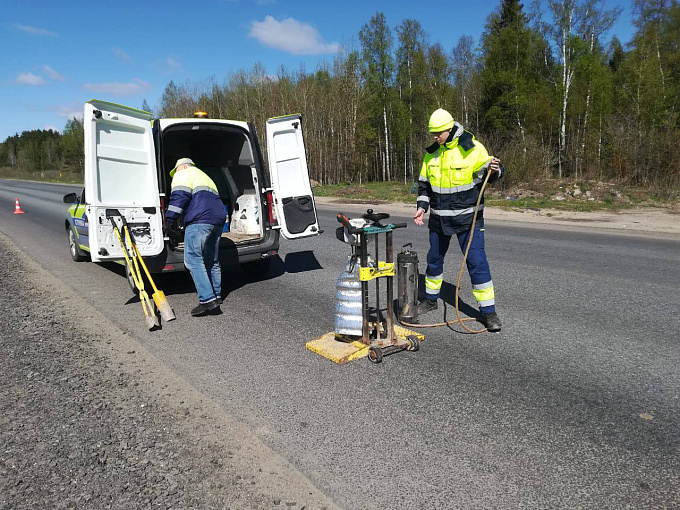Highly durable asphalt developed by university scientists successfully passes tests
Researchers from the Gubkin Russian State University of Oil and Gas (National Research University) have summed up the results of testing the asphalt concrete mix modifier developed at the university. The road surface made using it was tested for five years on the Shuya-Kovrov road section.
The experimental road section was organized with the support of the Ivanovo Region Government.
The tests confirmed that the bitumen structure modifier for asphalt concrete mix (working title: "MSB1") improves the consumer properties of the road surface, increasing frost resistance, resistance to cracking and rutting, and increasing noise absorption. In addition, measurements showed a reduction in the braking distance due to increased pavement adhesion.
The quality of the road surface on the experimental section was studied using control cutting, flaw detection, and ground penetrating radar scanning.
MSB1 is a complex additive. Its use changes the structure of asphalt concrete. It forms multi-level physical and chemical spatial networks, which ensures strong reinforcement of the asphalt concrete mixture and reduces the migration of low-molecular compounds (oil components) from bitumen.
Modification of the structure reduces asphalt wear, providing resistance to the effects of cyclic temperature changes, which are typical for the climate of central Russia.
Research has confirmed that the use of MSB1 allows using 0.6-1% less bitumen in the composition of the asphalt concrete mixture, which reduces the cost of the asphalt concrete mixture by 10% compared to existing analogues.
“We are currently producing pilot batches of the modifier. To expand production, it is necessary to have guarantees from consumers and the interest of companies. We are currently continuing to test the modifier to study its properties under various conditions. On the R-79 highway (Ivanovo - Yaroslavl), a second experimental section was organized several years ago using a pilot batch of asphalt concrete mixture, one kilometer long. We will monitor it until 2028,” said Elena Chernysheva, professor of the Department of Oil Refining Technology at Gubkin University.
At the next stage of the study, it is planned to develop optimized additive compositions for various climatic zones, where weather conditions differ from the central zone of Russia.
According to monitoring data from the Scientific and Educational Center "Bituminous Materials" of Gubkin University, the petrochemical industry continues to trend towards an increase in the share of heavy high-viscosity oils and high-freezing paraffin oils as raw materials. This significantly reduces the efficiency of the tar oxidation process and the quality of bitumen, requiring the use of modifiers - polymer compounds to improve the quality of the final product.
The Scientific and Educational Center "Bituminous Materials" is a scientific center that coordinates and evaluates scientific and technical developments in the field of bituminous materials. It was formed on the basis of the bitumen laboratory of Gubkin University – the oldest research center in the country for the creation of production technologies and improving the quality of bitumen materials.

